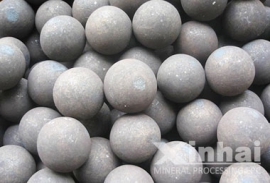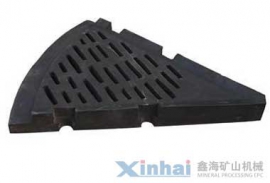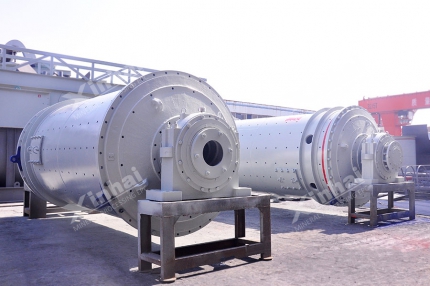Wet ball mill is working at the situation where the water content is higher. The concentration in the wet ball mill is about 30 percent to 50 percent. Grinding machines could be classified as grid ball mill and overflow ball mill, according to the different discharging ways. Overflow ball mill has the similar structure with the grid ball mill, but the steel balls and bigger materials could return to the barrel. Comparing these two types ball mills, grid ball mill has these advantages as following: The slurry surface of discharging end is low where slurry could be discharged easily; less overgrinding; loading more steel balls no matter the size of the steel balls; no leaking of small steel balls; high efficiency; low energy consumption. The shortcoming is its complex structure. The advantages of grid ball mills are the shortcomings of overflow ball mills. We should install the overflow ball mill when is material is fine.
There are three types of XINHAI’s wet ball mill: wet grid ball mill, wet overflow ball mill, cone ball mill and cone overflow ball mill. These ball mills could averagely save energy about 20 percent to 30 percent. Grid ball mill and overflow ball mill are indicated as MQG+specification and MQY+specification while energy-saving ball mill is added a g after the model. Such as the MQG1212—wet grid ball mill whose diameter is1200mm and length is 1200mm. Cone ball mill and cone overflow ball mill are indicated as GZMg+specification and GZM+specification. For an instance, GZMg1520 means the cone grid ball mill whose diameter is 1500mm and length is 2000mm. The g in this model is a symbol of grid ball mill.


 marketing@ytxinhai.com
marketing@ytxinhai.com  0086 13810327080
0086 13810327080 






































































































 CHAT
CHAT MESSAGE
MESSAGE.jpg)


